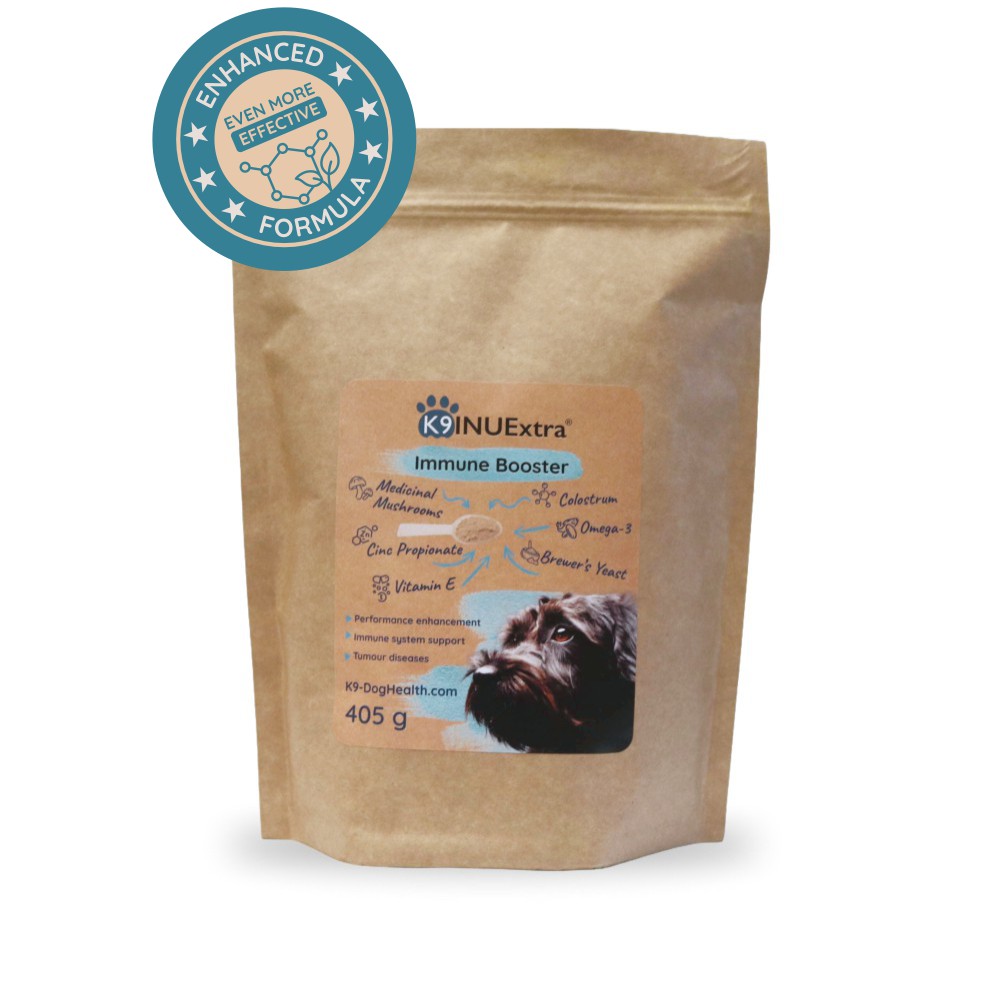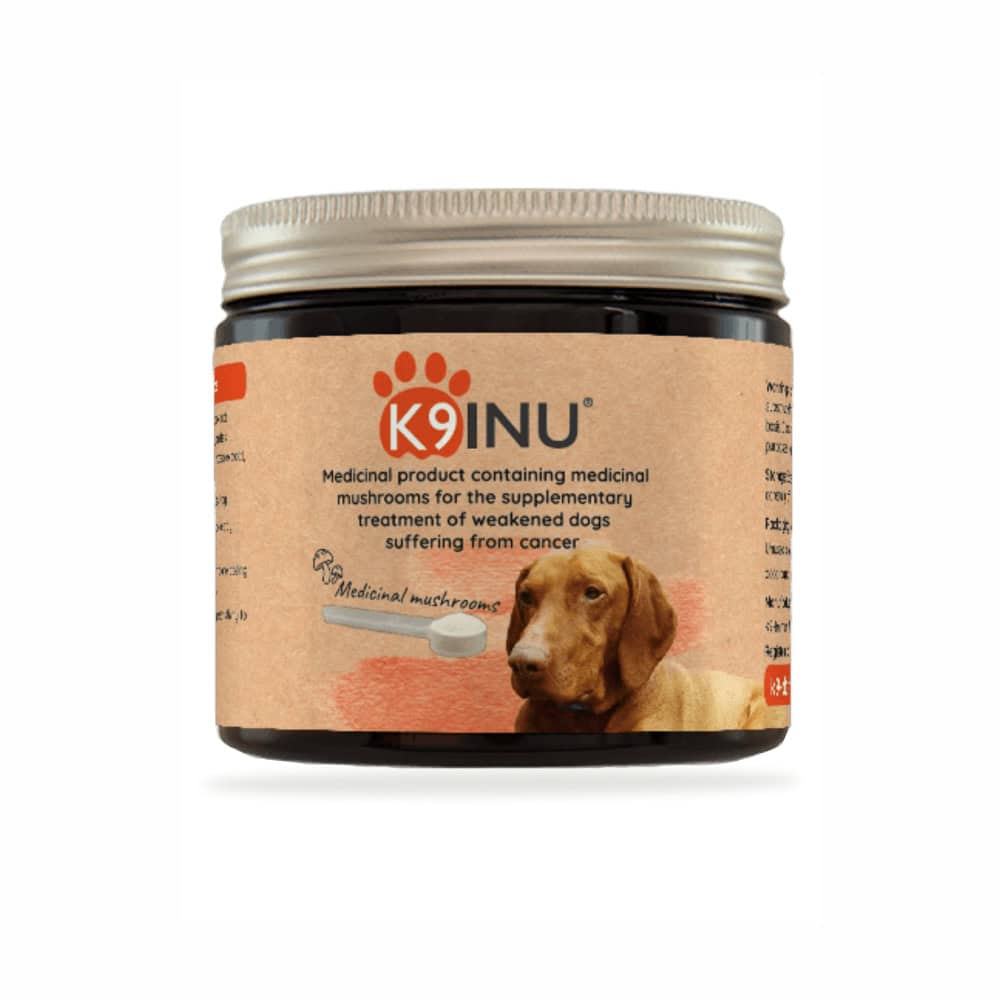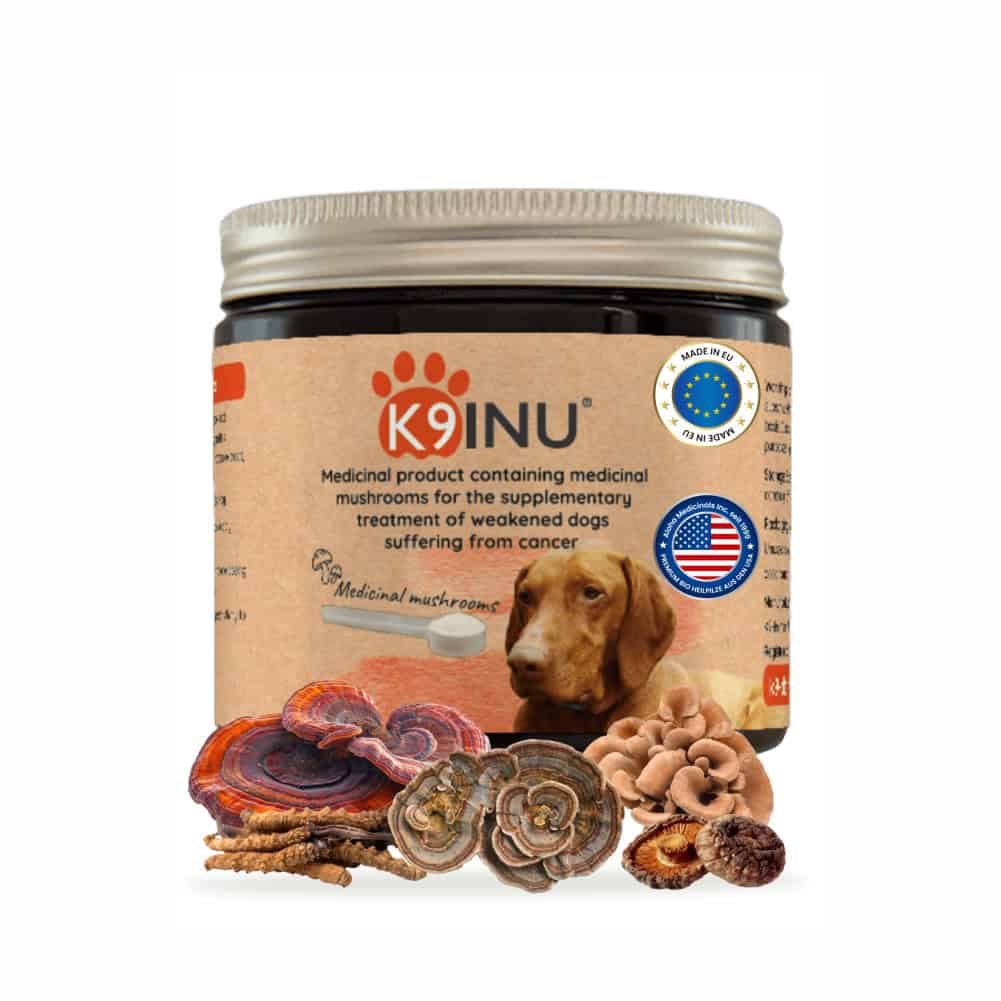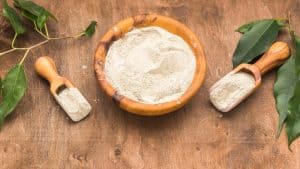Boosting your dog’s immune system: Why it matters
A strong immune system is crucial for keeping your dog healthy and protected from diseases. Whether you have a puppy, an adult, or a senior dog, supporting their immune system is essential for ensuring a long and happy life. Immune-boosting aims to help your dog fight off infections, reduce inflammation, and prevent chronic illnesses.
Scientific Insight: Veterinary Sciences (2019): Development of Dog Immune System: From in Uterus to Elderly. Read here.
Signs of a weakened immune system in dogs
If your dog’s immune system isn’t functioning properly, you may notice the following signs:
- Frequent illnesses: Recurring infections such as ear infections, skin problems, or gastrointestinal issues.
- Slow healing of wounds: Cuts or injuries take longer to heal.
- Lethargy: Your dog seems tired, uninterested in playing, or less active than usual.
- Loss of appetite: A decreased appetite that leads to weakness.
- Fatigue: Easily tired, even during routine activities like walks.
Scientific insight: A study by Frontiers in Immunology links Modulation of Host Immune Response during Leishmania infantum Infection in Dogs (Frontiers in Immunology, 2021).
Key ingredients in immune-boosting supplements for dogs
Immune-boosting supplements often include specific ingredients that target the immune system, and they work together to strengthen your dog’s natural defenses, so here are the most effective ones:
-


K9 INUExtra®
- Premium immune support with medicinal mushrooms and colostrum
- Anti-inflammatory support with curcumin, omega-3 and BioPerine
- Stronger gut flora and improved digestion with brewer’s yeast and targeted prebiotics
- Antioxidant cellular protection with vitamin E, zinc and natural active compounds
€64,93 (ex.VAT)
-
- Colostrum: Rich in antibodies and proteins, it helps strengthen your dog’s immune defenses.
- Medicinal mushrooms (e.g., Shiitake, Maitake, Reishi, Turkey tail): Natural antioxidants and immune modulators that enhance immune response.
- Probiotics: They support gut health, and since the gut is the foundation of a strong immune system, they indirectly strengthen overall immunity.
- Vitamin C: It protects cells, and it also helps fight infections, so it plays a key role in daily immune defense.
- Omega-3 Fatty Acids: They reduce inflammation, and therefore they promote immune cell function. (K9 INUKrill®)
- Antioxidants: They neutralize free radicals, and at the same time they aid cell regeneration, which helps long-term immune support.
Scientific insight: According to a review published in Scientific Reports: The effect of Ganoderma lucidum extract on immunological function and its mechanisms in mice (Scientific Reports, 2018).
How do these ingredients work?
- Colostrum: Stimulates the production of antibodies, providing protection against infections.
- Medicinal mushrooms: Activate white blood cells, which are essential for fighting pathogens.
- Probiotics: Improve gut health, which is critical for overall immunity.
Scientific insight: Probiotics have been found to improve the intestinal microbiome, a critical factor in immune health, as demonstrated in a study by Animals (MDPI) (Animals, 2022).
Lifestyle factors that support immunity
Boosting your dog’s immune system isn’t just about supplements—it’s also about maintaining a healthy lifestyle.
- Adequate sleep: Rest is essential for immune cell regeneration, and it helps your dog recover from daily stress, so always provide a comfortable and quiet sleeping space.
- Clean environment: Hygiene is crucial for preventing infections, because bacteria and parasites thrive in dirty places. Regularly clean your dog’s water bowl, bedding, and toys to reduce risks.
- Regular exercise: Physical activity stimulates blood circulation, and therefore immune cells can move more efficiently throughout the body. Exercise also reduces stress, which is another key factor in immune health.
Practical immune-boosting strategies for dogs
Beyond supplements, you can strengthen your dog’s immune system through simple daily routines, and you can also support it by paying extra attention in special situations, because both approaches work together to keep your dog healthy.
Special situations and what to do
- During stress (e.g., moving, traveling): add probiotics and medicinal mushrooms to stabilize immunity.
- Senior dogs prone to infections: omega-3s and colostrum help reduce inflammation and support healing.
- After illness, antibiotics, or vaccinations: probiotics restore gut flora, while immune-boosting supplements aid recovery and enhance vaccine effectiveness.
- Post-surgery: immune boosters promote faster healing and reduce infection risks.
Localized immune support for dogs: skin and mucous membranes
Supporting your dog’s external defenses is just as important as boosting internal immunity, because both systems work together to keep the body healthy:
- Skin protection: Essential fatty acids like omega-3s prevent dryness and reduce inflammation, so they help maintain the skin as a strong barrier against pathogens.
- Mucosal defense: Vitamin C and antioxidants strengthen the respiratory system’s first line of defense, and therefore they lower the risk of infections entering through the nose or mouth.
Boosting your dog’s immune system – Frequently Asked Questions
❓ Can immune boosters prevent cancer in dogs?
Immune boosters cannot guarantee cancer prevention, but a strong immune system helps the body detect and fight abnormal cells earlier. Supplements such as medicinal mushrooms and antioxidants are widely researched for their anti-tumor properties.
❓ Are immune-boosting supplements safe for long-term use?
Yes, most natural immune boosters like probiotics, colostrum, and mushrooms are safe for daily use. However, always consult your veterinarian for the right dosage and to avoid interactions with other treatments.
❓ Do senior dogs need different immune support than puppies?
Yes. Puppies benefit from colostrum and probiotics to build their immune system, while senior dogs need antioxidants, omega-3 fatty acids, and medicinal mushrooms to reduce inflammation and support aging immunity.
❓ Can immune boosters help dogs with allergies?
Yes, probiotics and medicinal mushrooms can regulate the immune response, and they also reduce allergic reactions. Moreover, natural supplements often help balance the immune system without harsh side effects, so they are a gentle long-term option.
❓ What is better: tablets, powders, or liquid immune boosters?
It depends on your dog’s preference, because every format has its advantages. Tablets are easy to dose, but they may not be ideal for picky eaters. Powders mix well into food, and therefore they are less noticeable. Liquids absorb quickly, so they are convenient for fast results. Choose the format your dog accepts best and that fits your lifestyle.
❓ How quickly will I notice results from immune boosters?
Some effects, such as higher energy or improved digestion, can be seen within 2–3 weeks. Stronger immunity and fewer infections usually become noticeable after consistent use for 2–3 months.
Further articles about dog diseases, living with dogs, and feeding dogs.
Summary
Boosting your dog’s immune system is essential for a long and healthy life. A balanced diet, targeted supplements (e.g., colostrum, medicinal mushrooms), and stress reduction all contribute to enhanced immunity.
Support your dog’s health with natural solutions and regular veterinary consultations to ensure your furry friend stays happy and energetic!
Important: This article is for informational purposes only and does not replace veterinary examination or treatment, and for an accurate diagnosis and the right therapy, you should always consult your veterinarian.
References
- Baneth, G., Cardoso, L., Solano-Gallego, L., Bourdeau, P., & Koutinas, A. (2021). Modulation of host immune response during Leishmania infantum infection in dogs. Frontiers in Immunology, 12, 794627.
- Rendon, J. L., & Chhonker, Y. S. (2019). Development of dog immune system: From in uterus to elderly. Veterinary Sciences, 6(4), 83.
- Xu, Z., Chen, X., Zhong, Z., Chen, L., Wang, Y., Lin, W., … & Xu, H. (2018). The effect of Ganoderma lucidum extract on immunological function and its mechanisms in mice. Scientific Reports, 8, 12934.
- Cohen, N. D., & Kirtz, G. (2021). Immunotherapy for dogs: Still lagging behind humans. Frontiers in Immunology, 12, 665784.
- Sivakumar, R., Lee, J., Choi, J., & Kim, D. (2024). Improved characterization and translation of natural killer cells in dogs. Frontiers in Veterinary Science, 11, 1336158.
- Bauer, J. E. (2007). Responses of dogs to dietary omega-3 fatty acids. Journal of the American Veterinary Medical Association, 231(11), 1657–1661.
- Hesta, M., Ottermans, C., Krammer-Lukas, S., Zentek, J., Hellweg, P., Buyse, J., & Janssens, G. P. J. (2009). The effect of vitamin C supplementation in healthy dogs on antioxidative capacity and immune parameters. Journal of Animal Physiology and Animal Nutrition, 93(1), 26–34.
- Xu, H., Li, Y., Liu, Y., Zhao, X., Wu, T., & Chen, Y. (2019). Oral administration of compound probiotics improved immunity and gut health in elderly dogs. Frontiers in Immunology, 10, 666.
- Barroso, C., Meneses, J., Righi, C., & Martins, A. (2024). Vitamins, minerals and phytonutrients as modulators of dog immune parameters. Veterinary Sciences, 11(12), 655.




